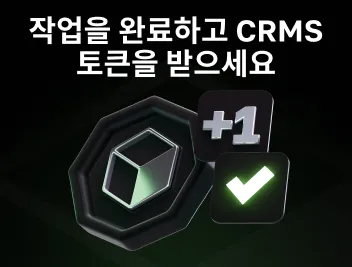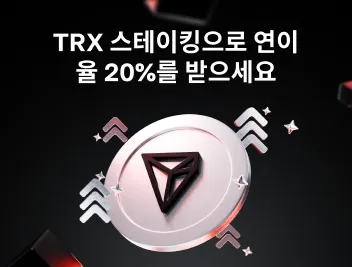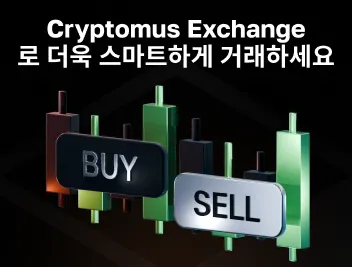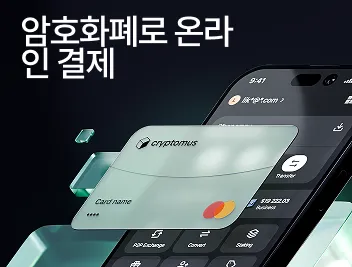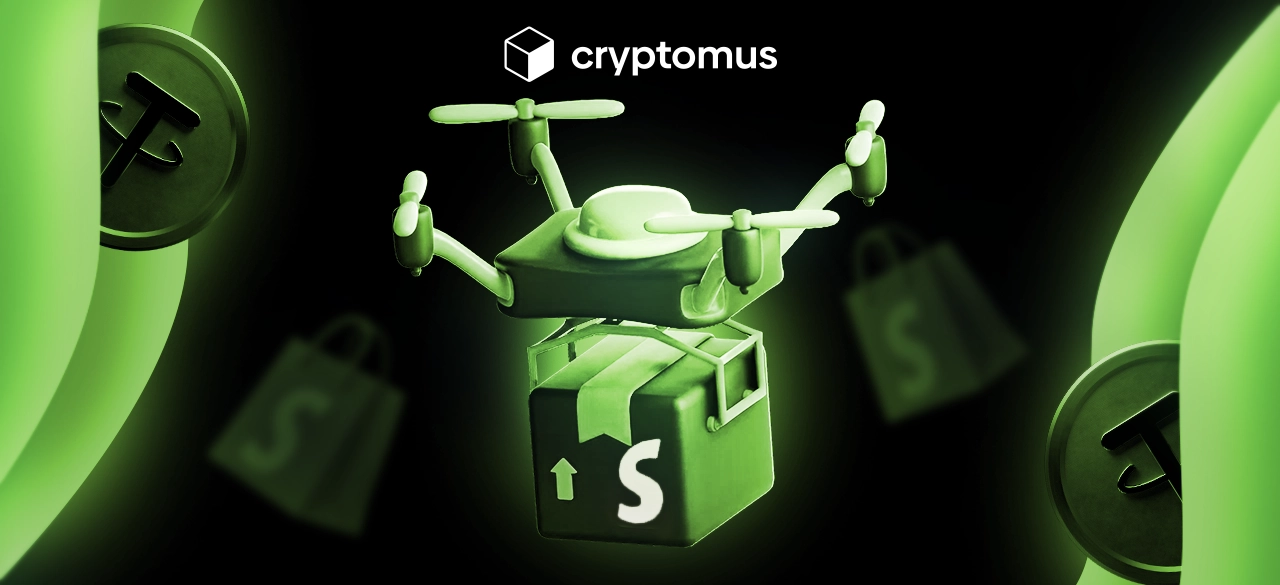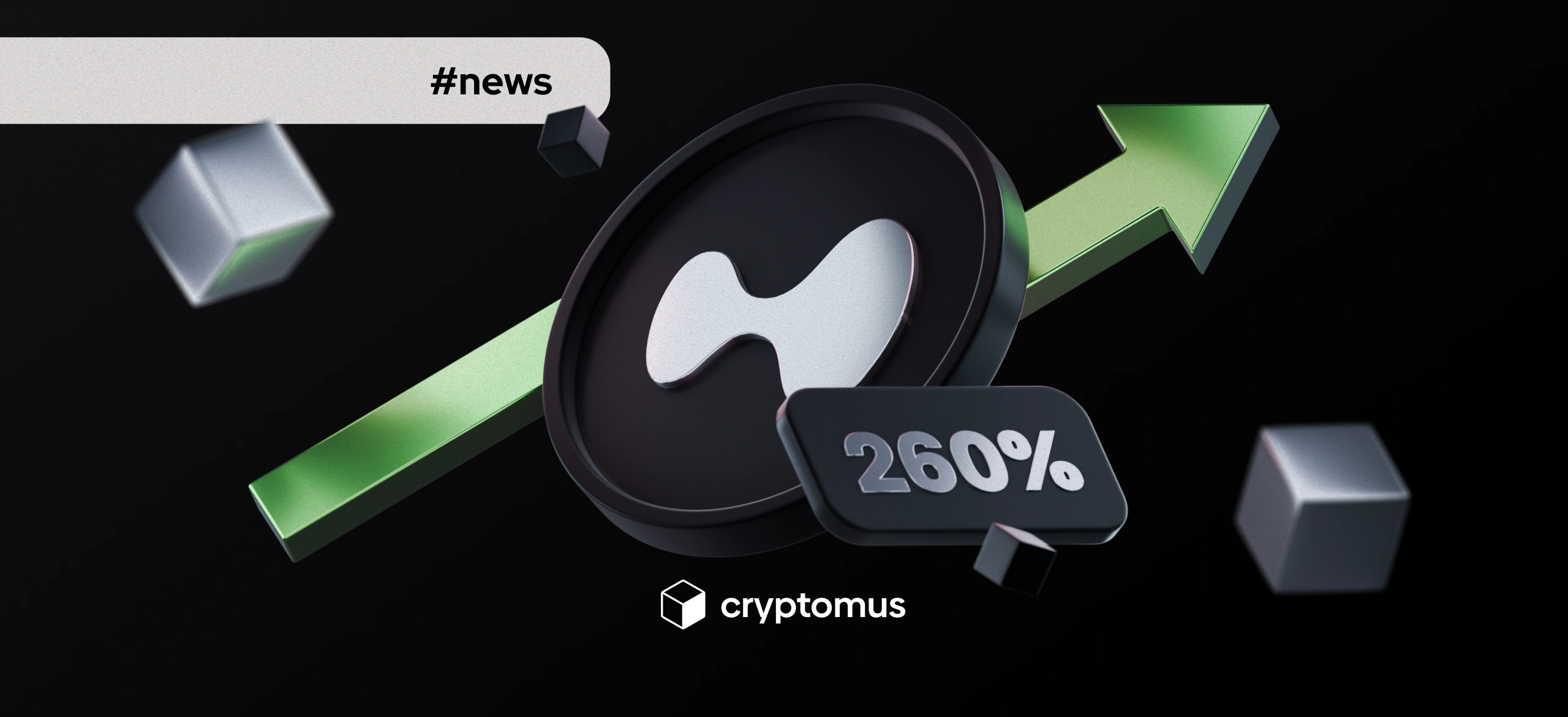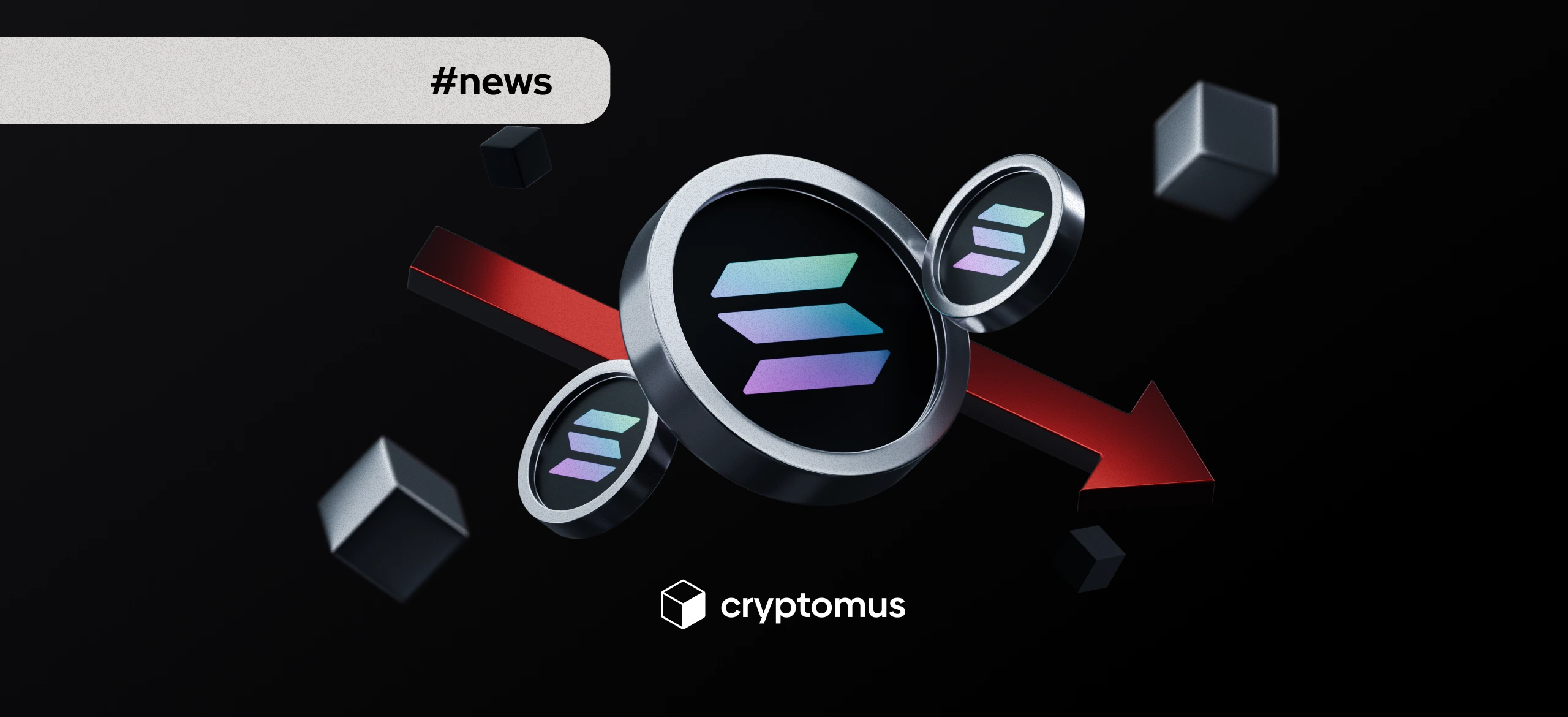
암호화폐를 익명으로 구매하는 방법?
목차
오늘날 사람들은 개인적인 금융 정보를 비공개로 유지하는 것에 점점 더 신경을 쓰고 있으며, 많은 사람들이 개인 정보를 공유하지 않고 암호화폐를 구매할 방법을 찾고 있습니다. 한때 암호화폐는 비밀스럽게 결제할 수 있는 방법으로 여겨졌지만, 대부분의 거래는 실제로 완전히 익명적이지 않습니다. 하지만 걱정하지 마세요 – 적절한 도구와 노하우만 있으면 여전히 금융 정보를 비공개로 유지할 수 있습니다. 이 가이드는 어떻게 암호화폐를 비공개로 구매하고 금융 데이터를 보호할 수 있는지에 대해 안내해 드릴 것입니다.
암호화폐 거래는 익명인가요?
암호화폐 거래는 종종 익명으로 생각되지만, 실제로는 "가명"이라고 더 정확하게 설명할 수 있습니다. 아래는 그에 대한 설명입니다:
- 거래의 가명성
대부분의 암호화폐를 사용할 때, 거래에 이름이 직접적으로 연결되지 않습니다. 대신 거래는 지갑 주소와 연결됩니다. 따라서 실제 이름은 표시되지 않지만, 누구나 블록체인에서 해당 지갑의 활동을 볼 수 있습니다.
- 공개 원장
비트코인과 이더리움과 같은 암호화폐는 블록체인을 사용합니다. 이는 모든 거래가 기록되며 누구나 이를 볼 수 있다는 의미입니다. 우리가 알아본 바와 같이, 이름과 개인 정보는 지갑 주소와 연결되지 않지만, 누군가 다른 방법(예: 거래소를 통해 또는 개인적으로 공유하는 경우)을 통해 지갑의 소유자를 추적할 수 있으면 거래를 쉽게 추적할 수 있습니다.
- 추적 및 비익명화
고급 블록체인 분석 도구를 사용하면 정부나 민간 기업과 같은 기관들이 거래를 추적하고 이를 실제 세계의 신원과 연결할 수 있습니다. 이 추적은 주로 거래 패턴을 분석하거나 KYC(고객 신원 확인) 규제를 준수하는 암호화폐 거래소의 데이터를 통해 지갑 주소를 연관시키는 방식으로 이루어집니다.
- 프라이버시 코인
일부 암호화폐 자산은 더욱 비공개적이도록 설계되었습니다. 모네로 (XMR), Zcash (ZEC), Dash (DASH)와 같은 코인들은 거래를 추적하기 어렵게 만드는 특별한 기능을 가지고 있습니다. 예를 들어, 모네로는 링 서명과 스텔스 주소와 같은 기술을 사용해 거래 세부 정보를 숨기는 반면, Zcash는 zk-SNARKs 알고리즘을 사용하여 선택적으로 개인 정보를 보호합니다.
- 익명성을 위한 최선의 실천
프라이버시를 강화하려는 사용자들은 믹서나 텀블러를 사용하는 등의 방법을 취할 수 있으며, 이들은 거래를 섞어서 추적을 더 어렵게 만듭니다. 그러나 이러한 서비스는 일부 지역에서 법적 문제와 위험을 동반할 수 있습니다.
KYC란 무엇인가요?
KYC, 또는 고객 신원 확인은 기업, 특히 금융 기관과 서비스가 고객의 신원을 확인하는 규제 절차입니다. 주요 목적은 돈 세탁, 사기, 테러 자금 조달과 같은 불법 활동을 방지하고, 이들 기관이 합법적인 고객과 거래하고 있음을 보장하는 것입니다. KYC에 대한 자세한 내용은 다음과 같습니다:
- KYC의 목적
- 법적 준수: KYC는 기업이 돈 세탁 및 테러 자금 조달 방지 법을 준수하도록 돕습니다.
- 위험 관리: 고객을 알게 되면, 기업은 위험을 더 잘 평가하고 의심스러운 활동을 조기에 감지할 수 있습니다.
- 신뢰와 보안: 신원을 확인함으로써 기관과 고객 간의 신뢰를 강화하고, 사기 활동을 방지하는 데 도움을 줍니다.
- KYC 절차
- 고객 식별: 고객은 이름, 주소, 생년월일, 정부 발급 신분증(예: 여권, 운전 면허증 또는 국가 신분증)을 제공해야 합니다.
- 문서 확인: 제공된 문서는 종종 전자적인 방법이나 수동 검사를 통해 진위 여부를 확인합니다.
- 얼굴 인증: 일부 기관은 고객의 신분증과 외모를 일치시키기 위해 실시간 또는 비디오 인증 절차를 요구할 수 있습니다.
- 주소 증명: 추가적인 서류, 예를 들어 공과금 청구서나 은행 명세서가 고객의 주소를 확인하는 데 필요할 수 있습니다.
많은 암호화폐 거래소와 서비스는 이제 규제 요구 사항을 충족하고 암호화폐 거래에서 흔히 발생하는 익명성을 해결하기 위해 KYC 절차를 시행하고 있습니다. 예를 들어, 은행에서 KYC는 새 계좌 개설, 대출 승인, 기타 금융 서비스 제공을 위한 표준 절차로, 사람들이 금융 시스템에 접근하기 전에 확인을 거칩니다.
따라서 KYC는 금융 범죄를 줄이는 데 중요한 역할을 합니다. 그것은 신원 도용, 금융 사기 및 기타 불법 활동을 방지하고, 모든 사용자에 대한 명확한 책임을 설정함으로써 이를 돕습니다. 또한, KYC는 고객과 금융 기관 간의 신뢰와 투명성을 향상시키며, 양 당사자가 규제된 환경에 속해 있음을 알게 됩니다. 이 추가된 보안 계층은 개별 사용자를 보호할 뿐만 아니라 전체 금융 생태계의 무결성을 강화합니다.

KYC 없이 암호화폐 구매 방법
KYC 없이 암호화폐를 구매하는 것은 더 큰 프라이버시와 익명성을 추구하는 사람들에게 매력적일 수 있습니다. 하지만 이러한 방법은 종종 더 높은 위험, 잠재적인 더 높은 수수료, 그리고 특정 관할 구역에 따라 법적 문제를 동반할 수 있다는 점을 인식하는 것이 중요합니다. KYC 없이 암호화폐를 구매하는 방법은 다음과 같습니다:
- 탈중앙화 거래소 (DEXs)
DEX는 중개인이나 중앙화된 감독 없이 암호화폐 거래를 촉진하는 플랫폼입니다. 대부분의 DEX는 사용자에게 계정을 만들거나 개인 정보를 제출할 필요가 없습니다. 거래를 위해 암호화폐 지갑만 있으면 됩니다.
- 직접 거래
직접 거래는 다른 개인과 만나서 현금 또는 상호 합의된 지불 방법을 사용하여 암호화폐를 교환하는 것입니다. 작동 방식은 이렇습니다: 누군가와 직접 만나 가격에 합의하고 현금 교환 후 암호화폐를 지갑으로 전송합니다. 보안을 위해 안전하고 공공장소에서 만나는 것이 좋고, 거래 과정에 대해 서로 신뢰해야 합니다. 일부 거래자는 P2P 플랫폼을 사용하여 최초 접촉 및 에스크로 서비스를 조정합니다.
- 암호화폐 바우처 및 기프트 카드
암호화폐로 교환할 수 있는 기프트 카드를 구매하여, 이를 사용해 암호화폐를 구매할 수 있는 플랫폼에서 이를 교환할 수 있습니다. 이러한 기프트 카드는 소매점이나 온라인 시장에서 현금 또는 표준 지불 방법을 사용하여 구매하고 개인 정보를 제공하지 않고 교환할 수 있습니다.
- OTC (장외 거래)
OTC 거래는 공개 거래소를 통해서가 아니라 브로커나 판매자로부터 직접 암호화폐를 구매하는 것입니다. 많은 OTC 서비스는 KYC를 요구할 수 있지만, 규제가 적은 소규모 서비스는 그렇지 않습니다. 거래는 주로 비공개 통신 채널을 통해 조정됩니다. 잠재적인 사기를 방지하기 위해 서비스의 합법성을 연구하는 것을 잊지 마세요.
- 채굴
채굴은 컴퓨팅 파워를 사용하여 거래를 검증하고 블록체인에 추가하여 보상으로 암호화폐를 얻는 과정입니다. 이 방법은 암호화폐를 직접 생성하므로 KYC가 필요하지 않지만, 하드웨어, 전기, 기술 전문 지식에 상당한 투자가 필요합니다.
- 비KYC 암호화폐 거래소 사용
규제가 덜한 거래소는 소규모 거래나 특정 거래 쌍에 대해 KYC를 요구하지 않습니다. 그러나 이러한 플랫폼은 보안이 낮을 수 있으며 갑작스러운 중
단이나 규제 조치의 대상이 될 수 있습니다.
- VPN 및 글로벌 옵션
KYC가 필요 없는 암호화폐 플랫폼에 접근하기 위해 VPN을 사용합니다. 이 방법은 플랫폼의 서비스 약관을 위반할 수도 있으며, 계정이 정지될 위험이 있습니다.
익명으로 암호화폐를 구매할 수 있는 최고의 플랫폼
암호화폐를 익명으로 구매하려면 여러 플랫폼과 방법이 있으며, 고객 신원 확인 없이 거래할 수 있는 방법을 제공합니다. 아래는 몇 가지 주요 옵션에 대한 개요입니다:
- 탈중앙화 거래소 (DEXs):
- Uniswap: 이더리움 블록체인에서 ERC-20 토큰을 지갑에서 직접 교환할 수 있는 선도적인 DEX.
- PancakeSwap: Binance Smart Chain에서 운영되며 BEP-20 토큰을 위한 유사한 기능을 제공합니다.
- 비KYC 중앙화 거래소:
- KuCoin: 특정 한도에서 KYC 없이 거래를 허용하며, 다양한 암호화폐를 제공합니다.
- MEXC: 높은 출금 한도로 익명 거래를 지원하며, 개인정보를 중요시하는 사용자들에게 적합합니다.
- 비트코인 ATM:
- 일부 비트코인 ATM은 소규모 금액에 대해 KYC 없이 구매를 허용합니다. 가용성 및 한도는 위치에 따라 다릅니다.
- 기프트 카드:
- Bitrefill과 같은 플랫폼에서는 암호화폐로 기프트 카드를 구매하여 이를 사용해 물품이나 서비스를 구매할 수 있으며, 이는 암호화폐 보유를 익명으로 활용하는 간접적인 방법을 제공합니다.
익명성을 유지하는 최고의 팁
암호화폐를 구매하면서 익명성을 유지하려면 특정 기술을 사용하고 개인정보 보호를 위해 신중하게 행동해야 합니다. 암호화폐 구매 시 신원을 보호하는 최고의 팁은 다음과 같습니다:
- 탈중앙화 거래소 (DEXs) 사용: KYC 없이 지갑에서 직접 거래합니다.
- 프라이버시 코인 선택: Monero 또는 Zcash와 같은 코인을 구매하여 더 나은 익명성을 제공합니다.
- VPN 또는 Tor 사용: 온라인 구매를 위해 IP 주소와 위치를 숨깁니다.
- 현금 또는 기프트 카드로 결제: 추적할 수 없는 지불 방법을 사용합니다.
- 프라이빗 지갑으로 출금: 신원과 연결되지 않은 자가 관리 지갑으로 암호화폐를 전송합니다.
- 거래 크기 제한: KYC 임계값을 초과하지 않도록 구매를 소규모로 유지합니다.
암호화폐를 익명으로 구매하는 것은 기존 방법보다 더 많은 노력과 신중함을 필요로 합니다. 탈중앙화 거래소, 프라이버시 코인 사용, VPN으로 인터넷 연결을 보호함으로써 상당한 수준의 익명성을 유지할 수 있습니다. 항상 정보를 유지하고, 신뢰할 수 있는 도구를 사용하며, 현지 규정을 준수하여 법적 경계를 넘지 않도록 보호하세요.
이 기사가 도움이 되었기를 바랍니다! 아래 댓글에 추가적인 질문이 있으시면 알려주세요.
암호화폐 여정을 간단하게
암호화폐를 보관, 송금, 수락, 스테이킹 또는 거래하고 싶나요? Cryptomus를 사용하면 모두 가능합니다. 간편한 도구로 가입하고 암호화폐 자금을 관리하세요.
시작하다
